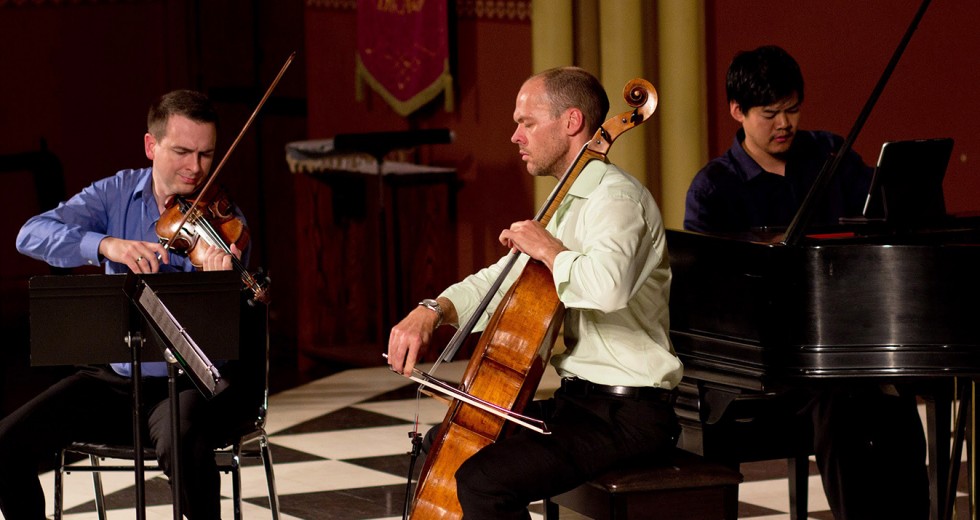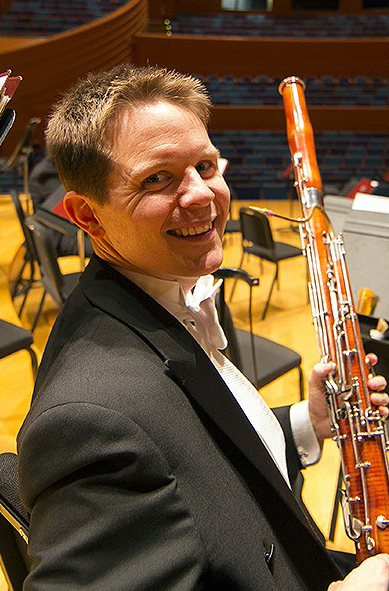
For Chicago audiences, Rush Hour Concerts’ Summer Concert Series is an easy, no-cost way to get a quick fix of classical music. The 30-minute concerts, at 5:45 p.m. on Tuesdays in the St. James Cathedral, 65 E. Huron, feature a broad range of familiar and not-so-familiar chamber music performed by an ever-changing cross-section of the city’s top artists.
For Chicago musicians, the concert series provides an informal way to reach out to audiences they might not encounter in other settings and to present highlights from their signature repertory, or alternately, to tackle works that they don’t have the opportunity to perform anywhere else. Regular participants include the Avalon and Spektral quartets, Third Coast Percussion, Fifth House Ensemble, Axiom Brass and Civitas Ensemble; young artists from the Ravinia Festival’s Steans Music Institute and Lyric Opera’s Ryan Opera Center, and an assortment of musicians from the Chicago Symphony Orchestra.
“Chicago has a ton of great musicians who work in various organizations, and concert series like Rush Hour enables us to combine our forces and our talents and come up with new groups and new ideas,” says CSO bassoon Miles Maner, who will perform in a Rush Hour concert Aug. 30.

Miles Maner | Todd Rosenberg Photography
The 2016 edition, which runs June 7-Aug. 30, will feature more than 60 musicians, most showcased in trios, quartets and quintets. Unlike last year, there is no overarching theme. Instead, artistic director Anthony Devroye has woven what he calls “smaller conversations” throughout this summer’s offerings. Among them is a focus on Czech composer Leoš Janáček (1854-1928), best known for his forward-looking 20th-century works, especially his operas. “His chamber music output is varied and interesting,” Devroye said, “but it’s also small enough that you can look at just a couple of his pieces and already get a pretty wide overview of what he did with the medium.” Among the featured Janáček works will be his String Quartet No. 2 (June 7), Pohadka (July 26) and Mladi (Aug. 9).
Next month’s programs, for instance, the July 12 lineup, will revolve around what Devroye called “warhorses” from the repertoire for piano and strings by “heavy-hitting, popular Romantic composers who people love to hear at summer music festivals.” A highlight will be Schumann’s Piano Quintet, one of the landmark masterpieces of 19th-century chamber music, performed by pianist Daniel Schlosberg and the Spektral Quartet.
In addition, the summer series will spotlight works by Chicago composers, such as Third Coast Percussion performing an entire program June 28 of music by its members — a first for the group — and an Aug. 23 concert that will preview the upcoming Ear Taxi Festival, an Oct. 5-10 celebration of new music in Chicago. At that concert, Ensemble Dal Niente and the Fulcrum Point New Music Project will present George Lewis’ Hexis and Mischa Zupko’s Occupy and Rising. “We’re always looking for ways to tie in to the wider cultural community,” Devroye said.
CSO musicians will be sprinkled across the entire series, starting June 14 when CSO principal trumpet Christopher Martin and trombonist Charles Vernon join the Axiom Brass for a program of works by Giovanni Gabrieli, Oskar Böhme and Witold Lutoslawski.
Other concerts featuring CSO musicians:
July 26: Cellist Brant Taylor, who also serves as consulting artistic director of Rush Hour Concerts, will join pianist Kuang-Hao Huang, the series’ associate artistic director, in a program titled “Folk Songs and Fairytales.” On tap will be Janáček’s Pohadka and Schumann’s Five Pieces in Folk Style.
Aug. 16: In a program titled “Puzzle Pieces,” the Civitas Ensemble (featuring clarinetist J. Lawrie Bloom, assistant principal cellist Kenneth Olsen and assistant concertmaster Yuan-Qing Yu) will perform music by John Mackey, Olivier Messiaen, Paul Moravec and Walter Rabl.
Aug. 30: The series ends with conductor John Macfarlane and the Rush Hour Concerts Chamber Orchestra, a specially formed ensemble featuring assistant principal clarinetist John Bruce Yeh and Maner. The group will perform Debussy’s beloved Prélude à l’après-midi d’un faune and Poulenc’s Le bal masque.
“Anybody who is in the CSO knows they are lucky to be there, and they are happy to work there,” Maner said. “But at the same time, it’s a specific dish, it’s a specific flavor of classical music. And a lot of people in that orchestra have talents and things to offer outside of what the CSO does, as varied as it is. CSO musicians like to work with other musicians and to create unique projects that the CSO may not do.”
For a complete lineup or other information, visit rushhour.org/programs/summer-concerts or call (312) 640-7418.
Kyle MacMillan is a Chicago-based arts journalist.
TOP: CSO cellist Brant Taylor (center) with violinist John Macfarlane and pianist Winston Choi at a Rush Hour Concerts performance. | Photo by Elliot Mandel